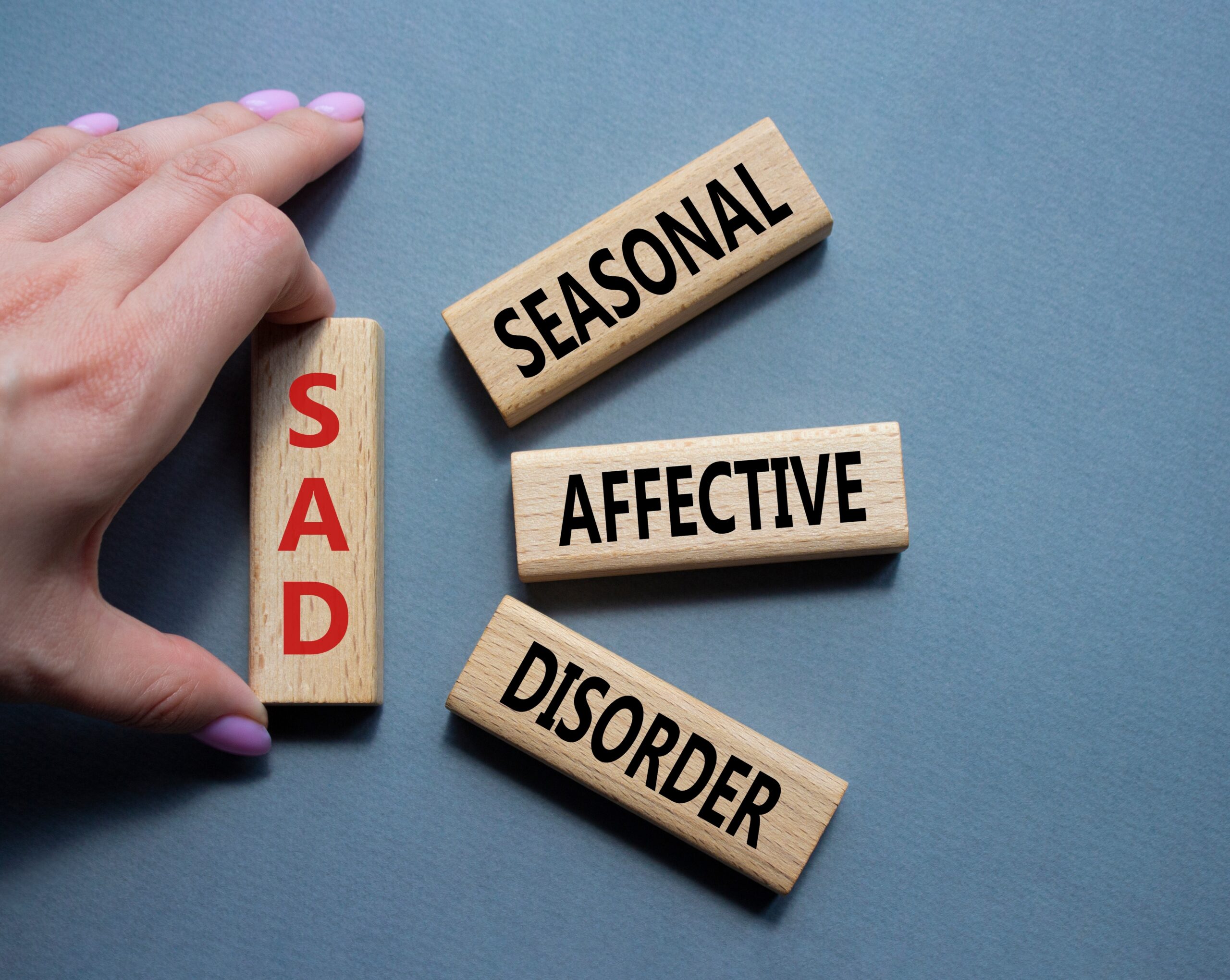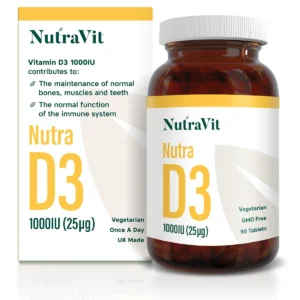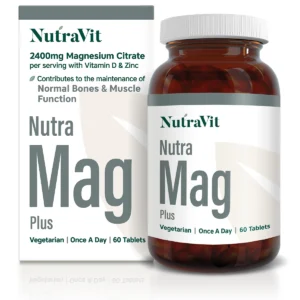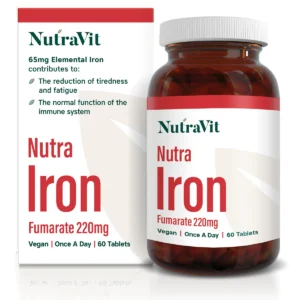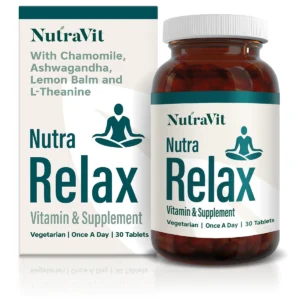How much sunlight exposure do you get in the winter? If you’re like many of us, that answer is probably not a lot. In fact, 1 in 3 people in the UK suffer from seasonal affective disorder due to limited sunlight exposure.
While it’s not a definite cause, the colder, darker and isolating months in winter can increase your risk of experiencing SAD. If you’re not familiar with SAD, it’s a form of depression that typically occurs in winter sapping you of your energy.
It can however be resolved. Dive in with us to know about seasonal affective disorder symptoms, how to treat them and unique supplements which may help.
What is Seasonal Affective Disorder?
Seasonal Affective Disorder (SAD) is a form of depression which comes and goes in a seasonal pattern. According to the NHS it’s often referred to as “winter depression” as Seasonal Affective Disorder symptoms are the most present and severe in winter. However, there can be occasions where people experience SAD symptoms during the summer and feel better in winter.
While it’s normally ok to feel a bit mild and stuck inside during winter, SAD goes way beyond that. If not addressed it can significantly impact your daily life, feelings and thoughts.
Seasonal Affective Disorder Symptoms
For most, those who have SAD their symptoms typically begin in Autumn and then intensify during the winter months. Later in the seasons to come, they often resolve on their own. To know if you have SAD, here are some common symptoms to look out for:
- Increased sleep
- Daytime fatigue
- Lack of interest and pleasure in activities you usually enjoy
- Social withdrawal
- Anxiety
- Irritability
- Feelings of guilt
- Lack of appetite or increased appetite
- Difficulty concentrating
If you feel you have a few of these symptoms and are struggling to cope, then you may need to see your local GP.
5 vitamins and minerals that can help seasonal affective disorder symptoms
There’s no complete cure for seasonal affective disorder. However, your diet can play a large role in how you go about the winter. Vitamins and minerals can have a positive impact on your mood and sleep patterns. To help increase your mood during winter, here are some vitamins and minerals you should consider upping your intake:
Vitamin D
In winter, you’re less likely to be exposed to as many hours of sunlight as you are in the spring and summer months. Because of which, you may have a lower level of vitamin D and low levels are linked to depression; however, it’s unknown if they’re a direct cause of SAD.
One hormone that is dependent on vitamin D is serotonin. Increasing your Vitamin D intake could help boost your serotonin levels, making you experience more of a ‘feel good factor’ in the winter.
Pro Tip: Try taking Nutra D3 this winter season. This high strength vitamin supplement is associated with a range of benefits. Regarding SAD, it can help alleviate certain symptoms such as reducing tiredness and fatigue. Moreover it can help support your immune system, bone health and encourage iron absorption.
Magnesium
Magnesium is a mineral that plays a role in your brain function and mood regulation. Low levels of magnesium are associated with an increased risk of depression. This mineral also plays a role in hundreds of biochemical reactions that happen in your body, such as nervous system regulation, protein formation and more, which can make you feel more energised in winter.
Pro Tip: Try Nutra Mag a supplement for both men and women that can help ease up season affective disorder symptoms. This magnesium citrate supplement is fast absorbing, supporting your sleep and physiological function. It also contains B3, B6, B12, D3, Zinc and Boron which can help your energy levels.
Iron
Iron is a mineral that your body uses to make haemoglobin, a protein in your red blood cells that carries oxygen. Having ample amount of iron in your body can help fortify the immune system, enhancing sleep, cognitive function and also supports the health of pregnant women.
Pro Tip: If you feel like you’re not getting enough iron from food sources this winter, then try Nutra Iron. This supplement contains 65mg of highly absorbable elemental iron that helps reduce symptoms of SAD. It helps reduce tiredness and fatigue, supports cognitive function, transports oxygen around the body, and supports your immune system.
L-Tryptophan
Not quite a mineral or vitamin, but an amino acid that is used by your body to convert into 5-HTP and then into serotonin. Serotonin is an essential hormone that helps transmit signals between nerve cells and influences mood. L-Tryptophan is one amino acid that can help with mood and depressive symptoms.
Pro Tip: Nutra Neuro is a supplement that may help support your mental health this winter. It’s been specifically formulated to help boost cognitive function and support mental clarity. It contains L-Tryptophan alongside, ginkgo biloba extract, calcium, magnesium and rhodiola rosea extract.
Vitamin B
Vitamin B is a another crucial vitamin that can help support your mental wellbeing this winter. In particular vitamin B6 helps play a role in enhancing the function of neurotransmitters increasing your mood. Moreover vitamin B12 helps with the formation of red blood cells reducing the risk of confusion, irritability and depression.
Pro Tip: Nutra Relax is a cutting edge supplement that contains a range of ingredients such as vitamin B6 and magnesium. Together they support mental and physical relaxation, allowing you to balance out winter that little bit more easier.
Other Ways to Help with Seasonal Affective Disorder Symptoms
In addition to increasing your vitamin and mineral intake this winter, there are some lifestyle modifications you can make to reduce symptoms. Here are some to consider:
- Spend more time outdoors when possible, go for short walks
- Undergo daily exercise to boost energy levels
- Eat a healthy and well-balanced diet
- Practice mindfulness, i.e. yoga, meditate, read or spend time in the present
- Spend time with friends and family
Wrapping up Seasonal Affective Disorder
To recap, the causes of Seasonal Affective Disorder are often unknown. It’s thought SAD occurs due to a range of factors. While it comes and goes, there are a few vitamins and minerals you can increase your uptake of to reduce symptoms.
Try adding more Vitamin D, Magnesium, Iron, Vitamin B and L-Tryptophan to your diet. This combined with certain lifestyle modifications such as exercising frequently, staying social, eating a healthy diet and being more mindful can help minimise your symptoms as much as possible. One major symptom of SAD is a lack of concentration- learn how to enhance your concentration more, see our post- 4 vitamins for memory support.
 FREE UK DELIVERY ON ORDERS OVER £20.
FREE UK DELIVERY ON ORDERS OVER £20. WORLDWIDE SHIPPING AVAILABLE
WORLDWIDE SHIPPING AVAILABLE
